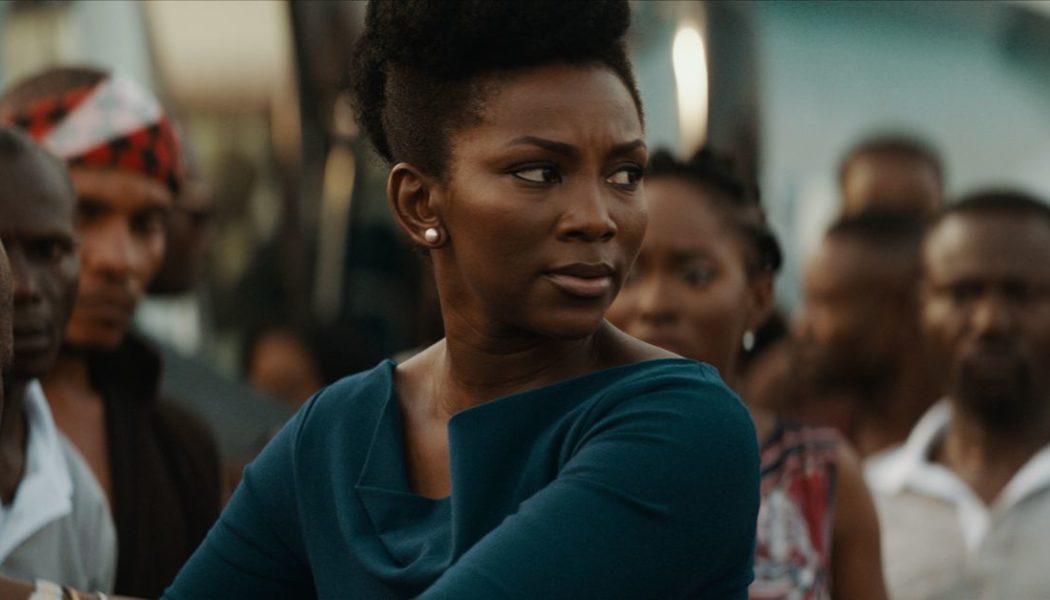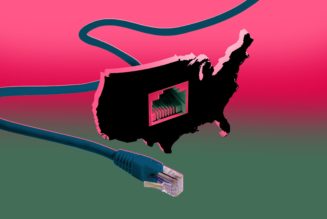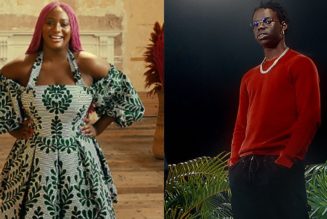
In 2016, a team of young, scrappy Nigerian filmmakers made Ojukokoro (Yoruba for “greed”), a twisty crime thriller. They were convinced their little film was going to change Nollywood for the better. The chaotic Nigerian film industry, conveniently known as Nollywood — second only to India’s Bollywood in terms of volume of output — is famous for micro budget, melodramatic movies released direct to video.
Adopting the dark humor, cinematic stylized violence, and multiple points of view associated with the work of elite directors like Quentin Tarantino and Guy Ritchie, Ojukokoro premiered to strong word of mouth buzz at Nigeria’s premier film festival but bombed at the box office the next year. It wasn’t till 2021 that the film would find its biggest and most appreciative audience: Netflix.
“Ojukokoro went to cinemas in March 2017, then a couple of streaming platforms including Amazon Prime before arriving [on] Netflix in April 2021. What if I told you that the organic conversation generated this year alone has been more than all other platforms combined? And this is a film with a Yoruba title, so it is probably Nigerians that are watching,” producer Olufemi Ogunsanwo says of his film’s five-year journey to success.
Ojukokoro is emblematic of the impact that the world’s biggest streaming company has had on Nollywood. Netflix can assure a global audience for films that may have not stood a chance anywhere else. But as industry players have discovered, this visibility by itself is not nearly enough. Not when it comes with its own batch of problems.
Ojukokoro peaked at number two on the Netflix Nigeria top 10 chart, but because Netflix does not share viewing data, it’s hard to know just how popular it really was. Nollywood films have routinely played well on the platform, though, as Netflix has listed titles like Òlòtūré, Citation, and The Delivery Boy as some of the most viewed Nollywood content of 2020, not just in Nigeria, but in overseas territories as well.
Netflix’s global active subscriber base of 208 million members is a dream for filmmakers in search of a ready-made audience. The streaming giant has been licensing Nollywood content since 2015, but this relationship deepened significantly with the service’s focus on expansion in global markets. The Netflix Nigeria launch was marked by a high-profile event in Lagos with chief content officer Ted Sarandos fêting local talent just before COVID-19 hit.
A subsequent glossy campaign, titled “Made by Africans, Watched by the World” with Nigerian creatives prominently highlighted, made it clear that Netflix wants to stay in business by establishing relationships with some of the industry’s biggest names.
[embedded content]
Still, Netflix embarked on a content licensing spree spearheaded by Ben Amadasun, the Nigerian-born director of African originals and acquisitions. “We are grateful that our business model allows us to work differently with local creators and continue to invest in their work, so we’ve been able to deliver exciting Nigerian stories in spite of the many challenges faced in 2020,” Amadasun told me via email.
For independent Nollywood filmmakers, the Netflix relationship is a lifeline to an industry badly in need of structural uplift, having hit something of a plateau with both video and theatrical, its two primary distribution models.
Led by Netflix, streaming has provided filmmakers with additional sources of income and wider profit margins than theaters were offering. For licensing content to Netflix, for example, independent producers and studios get about 80 percent of the fees with the rest going to the aggregators who serve as middleman brokers. For theatricals, exhibitors and distributors cut into profits significantly, leaving the producer with roughly 35 percent.
“The benefits of having a player with the global reach of Netflix means your work can reach 200 countries and millions of viewers. This is, I think, the first time the industry is having true global distribution. Also, Netflix money is not bad money so this is added income,” Baba Agba, national secretary of the Association of Movie Producers, tells The Verge.
Apart from Nigeria’s sizable population — both at home and in the diaspora — Netflix can tap into the cultural zeitgeist as Nollywood films continue to cross over into global territories via memes, gifs, and viral videos on the internet.
There are obvious benefits to the arrangement. But industry insiders have had cause to worry about a total Netflix domination. At the heart of Netflix’s operations, especially in the wake of COVID-19 theater shutdowns, is the financial muscle to snatch up the biggest and most prominent filmmakers — most of whom could usually be trusted to guarantee a big payday at the local box office.
Nollywood’s biggest star, Genevieve Nnaji, went straight to Netflix with her directorial debut Lionheart in 2018. EbonyLife Films, the studio behind some of Nollywood’s biggest box office hits, pivoted to Netflix when cinemas were locked down. Apart from the trafficking drama Òlòtūré released as a Nigerian original last year, EbonyLife Films — led by the mogul Mo Abudu — has signed on to produce a slate of other content including an adaptation of Death and the King’s Horseman, the revered play by Nobel laureate Wole Soyinka. Ditto big-name directors like Kunle Afolayan (Citation) and Kemi Adetiba (King of Boys: The Return of the King).
[embedded content]
While Agba certainly sees how a Netflix show of strength can affect theaters, he has little sympathy for the latter model. He believes that it’s one that became too powerful for its own good and missed several chances to build new audiences. In the scramble for profits, theater exhibitors and distributors began to gatekeep the kinds of films they gave priority showtimes. Certain filmmakers were given priority, certain kinds of projects — think lavish displays of the lives of the wealthy 1 percent — were easily greenlit and positioned as blockbuster hopefuls. This led to an environment that shut many filmmakers out.
“What the theatrical operators get now is what they deserve, to be honest,” Agba says. “The business was not viable for most producers. Instead of helping, the theatrical guys focused efforts on certain films and productions and sabotaged others. If they were developing or encouraging a fresh pool of talent, then there would be bankable talent to replace the ones that are being courted by Netflix.”
Making this particularly worrisome is the fact that Nollywood has never really been a theatrical-based medium. The Nigerian film industry is essentially a product of the unwieldy melding of the video and television formats. The economic collapse of the ‘80s put a halt to the theatrical format that enjoyed its heyday in the ‘70s. Nollywood started as a locally resourced way of filling this gap for cinematic content. This movement was powered by video, the technology of the time. Living in Bondage, the 1992 Igbo language film that pioneered this new wave, was a huge crossover hit and inspired a cascade of production activity across the country.
The return to democracy in 1999 ushered in an economic boom that encouraged the return of theaters. As a result, filmmakers began to upskill to produce content that could be serviced to the big screen. Melodrama and over-the-top stories gave way to more intentional filmmaking that came closer to the refinement of Hollywood movies.
This development began to attract people who studied film in schools, home and abroad, and were influenced by European, Asian, and Hollywood-style filmmaking. The progress was gradual but tangible. Bankable stars were minted, box office records were created by films such as The Wedding Party, and Nigerian films were accepted in international film festivals from Berlin to Sundance and Toronto.
Having a film on Netflix has become the new status symbol among filmmakers. Bragging rights are great, but there are also fears that succumbing to streaming’s smaller screen specifications could erase the small gains of the past decade in terms of building a budding cinema culture.
Moses Babatope, managing director of FilmOne Entertainment, the country’s trendiest distribution operation — it also serves as the major bulk aggregator that licenses content to Netflix — does not see it as a zero-sum game. “There have been some worries about production quality of Nollywood films dropping, but rather than blame it on the ingress of streaming platforms, I will focus more on the level of investments made in production,” he says. “How much production budget are these filmmakers working with? I don’t believe any passionate filmmaker will willingly drop standards if there is finance to work with.”
The sum of Netflix’s engagement in Nollywood — and elsewhere — can be broadly divided into licensing and originals. Licensing content is a tool for audience building and engagement, and this is reflected in Netflix’s strategy so far. Quantity trumps quality, and while the bulk of the films on the platform may well be described as mirroring the broad tastes of the Nigerian audience — the same theatrical distributors aggregate content for Netflix — they do not tell the complete story.
[embedded content]
There are the comedies, the melodramas, and the feel-good fare that routinely score at the box office sure enough. But more striking is what is not represented on the platform. Some of the most critically lauded Nigerian films of recent years are conspicuously absent. Terrorist drama The Milkmaid, which was the country’s first submission to the Oscars foreign language competition, has not been licensed; neither has the festival hit Eyimofe (This is my Desire), which was recently added to the Criterion Collection. Even the stylish genre thriller, La Femme Anjola starring Rita Dominic, one of Nollywood’s most enduring stars, is absent. Films like these have production costs and efforts that are above the industry average and the filmmakers naturally expect to be valued appropriately.
For Hollywood and other territories, Netflix can simultaneously pursue commercial fare and prestige pictures for awards season. But for Nollywood, it all seems one dimensional, almost as if Nigerians are only interested in a certain kind of content. Babatope explains FilmOne’s role in this. “We don’t impose content on Netflix. They purchase based on an understanding of demand on their platform which to a good extent, could be informed by performance at the box office.”
Amadasun offers a clearer portrait. “We commission and acquire content based on human intuition and judgement. Like any studio or network, we have to evaluate the balance between how many people watch a show and how much it costs to acquire that show. Ultimately, there’s not any one particular factor.” With specialty options for distributing prestige content limited, filmmakers have little incentive to continue to make them, as neither theaters nor Netflix seem to want them.
Netflix offers compensation which it claims is reflective of market rates. This comes down to average licensing fees of between $10,000 to $90,000, with most deals landing near the middle range according to off-the-record conversations with producers. In comparison, Netflix plans to spend $500 million on films and series produced in South Korea this year alone, the same amount the company announced it would be spending making and licensing content in the United Kingdom in 2019. At the heart of this disparity lies a critical discussion about how Black art is valued in mainstream spaces.
Producers are grateful for the funds but do not entirely agree with Netflix’s valuation. Walter Taylaur, who has had two of his films licensed on the platform, argues, “Their explanation would make better sense if the films were being shown in Nigeria alone. But if you think the content is good enough to be shown in worldwide markets, maybe pay worldwide rates.”
Original film commissions could represent the most impactful avenue for development and industry engagement as the dividends trickle down to below the line players. Netflix-commissioned budgets tend to be a lot higher than standard industry rates and the stringent technical requirements enable quality assurance.
But while South Africa has had success with multiple original series like the teen drama Blood & Water and dance spectacle Jiva!, Nollywood has yet to deliver a single commissioned original property despite several announcements. At least two previously commissioned series have stalled, prompting fears of a talent capacity challenge. The first Netflix-commissioned Nigerian original on the horizon is the hotly anticipated sequel to the 2018 gangster drama King of Boys which arrives August 27th, but as a seven-part series instead.
Without going into specifics of each situation, Amadasun offers the obvious answer. “The last year has been a difficult one for the industry to say the least. As you can imagine, COVID — which hit the world just on the back of our announcement about our intention to invest in Nigerian stories — has had a huge impact on the industry. Not just in Nigeria but around the world.”
All four of the Netflix Nigerian original films so far, from Lionheart to the Nollywood-Bollywood mashup Namaste Wahala, were licensed exclusively as such with zero or minimum Netflix involvement in production stages. All save for Lionheart garnered tepid reviews.
The excitement initially generated by Netflix’s entry into Nollywood has now been replaced by a cooler realization that Netflix isn’t some kind of savior, and the industry needs much more than money and eyeballs to thrive. For a long time, Nollywood — like Nigeria itself — has relied on dysfunction. And while this madcap energy has delivered some success, the streaming era has highlighted the large gaps in the available distribution models. Gumption and resourcefulness are no substitute for working, durable structures.









